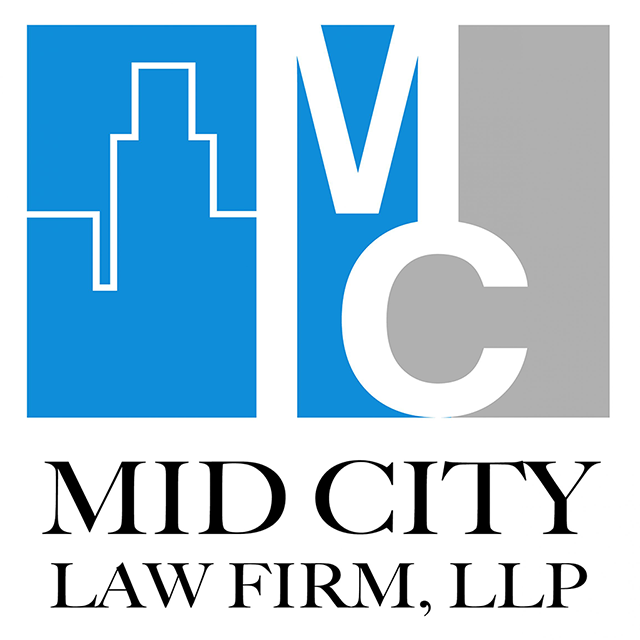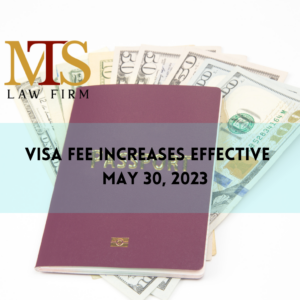Table of Contents
Waiver of Grounds of Inadmissibility
An individual who is ineligible to be admitted to the United States as an immigrant or to adjust status in the United States, and certain nonimmigrant applicants who are inadmissible, must file this application to seek a waiver of certain grounds of inadmissibility.
The Immigration and Nationality Act contains various provisions establishing grounds of inadmissibility and applicable waivers for each, if any.
The following are the most common forms of waiver:
- Form I-601 Waiver
- Form I-601A Provisional Waiver
- Form I-212 Waiver
Form I-601 Waiver
The Form I-601 waiver is an application seeking to waive the grounds of inadmissibility of an alien who is ineligible to be admitted into the United States as an immigrant or adjust status in the United States, or certain nonimmigrant applicants who are inadmissible, based on any of the following grounds:
- Health-related grounds;
- Certain criminal grounds;
- Immigrant Membership in Totalitarian Party;
- Immigration fraud or misrepresentation (except for a false claim to be U.S. citizen made on or after September 30, 1996);
- Smuggling and being subject of civil penalty;
- The 3-year or 10-year bar due to previous unlawful presence in the United States;
- Certain grounds of inadmissibility, if filed by an applicant for Temporary Protected Status;
- INA section 212(a)(9)(A) (Aliens Previously Removed) and INA section 212(a)(9)(C) (Unlawfully Present After Previous Immigration Violations), if filed by a NACARA or HRIFA adjustment applicant;
- INA section 212(a)(9)(C) (Unlawfully Present After Previous Immigration Violations), if filed by a VAWA self-petitioner;
- Certain grounds of inadmissibility, if filed by a T nonimmigrant visa status holder applying for adjustment of status.
Different eligibility requirements apply to different types of grounds of inadmissibility. Certain waiver provisions require the establishment of extreme hardship for certain qualifying family relationships. In all cases, the applicant must show that the approval of the application is warranted as a matter of discretion, with the favorable factors outweighing the unfavorable factors in the case. For extreme hardship waivers, the following factors are generally considered: health, financial considerations, education, personal consideration, and special factors such as cultural, language, religious, and ethnic obstacles, valid fears of persecution, physical harm, social ostracism or stigma, access or lack of access to social institutions or structures for support, guidance or protection.
Form I-601A Provisional Waiver
The Form I-601A waiver is used by immediate relatives of U.S. citizens to request a provisional waiver of the unlawful presence grounds of inadmissibility under INA section 212(a)(9)(B), prior to departing the United States to appear at a U.S. embassy or consulate for an immigrant visa interview. This is available to those who are statutorily ineligible to apply for adjustment of status in the United States. Before this waiver became available, aliens ineligible to apply for adjustment of status in the United States must depart first and file their waiver application at the U.S. embassy or consulate where they will be interviewed. This provisional waiver eliminates this requirement by allowing the alien to file the waiver application in the United States, wait for approval of the application, and once the waiver is approved, leave the United States only for the purpose of attending the visa interview.
To qualify, the applicant must be:
- Physically present in the United States;
- At least 17 years of age at the time of filing;
- The beneficiary of an approved immigrant petition classifying the applicant as an Immediate Relative of a U.S. citizen (i.e., spouse, unmarried child under 21 years old, parent);
- Have an immigrant visa application pending with the Department of State (National Visa Center) related to the approved immigrant petition for which the visa fee has been paid; and
- Only inadmissible under INA section 212(a)(9)(B)(i)(I) (3-year Unlawful Presence Bar) or INA section 212(a)(9)(B)(i)(I) (10-year Unlawful Presence Bar).
The provisional waiver only waives the 3-year or 10-year unlawful presence bar and does not apply to other grounds of inadmissibility. It should also be noted that the qualifying relationship for extreme hardship differs from that required for regular Form I-601 waiver. The applicant must have a U.S. citizen spouse or parent who would experience extreme hardship if he or she would be refused admission to the United States. An applicant with lawful permanent resident spouse or parent will not meet the qualifying relationship requirement.
Form I-212 Waiver
The Form I-212 waiver is an application seeking to waive the grounds of inadmissibility under section 212(a)(9)(A) or (C) of the Immigration and Nationality Act, as follows:
(1) Inadmissible under INA Section 212(a)(9)(A)(i)
- Removed from the United States as an inadmissible alien through expedited removal proceedings under INA section 235(b)(1) that are initiated upon arrival at a port of entry; or
- Removed from the United States as an inadmissible, arriving alien under INA section 240 (i.e., removal proceedings were initiated upon arrival at a port of entry in the United States.
An alien inadmissible under this section may not seek admission to the United States within the following specified period, without first obtaining a Form I-212 waiver:
- 5 years, if the alien was only removed once;
- 20 years, if the alien was removed twice or more;
- Forever, if the alien was removed as an arriving alien and if the alien has been convicted of an aggravated felony.
(2) Inadmissible under INA Section 212(a)(9)(A)(ii)
- Removed from the United States as a deportable alien under INA section 240;
- Ordered removed under any other provision of U.S. law; or
- Departed the United States on his/her own while an order of removal was outstanding.
An alien inadmissible under this section may not seek admission to the United States within the following specified period, without first obtaining a Form I-212 waiver:
- 10 years, if the alien was only removed once;
- 20 years, if the alien was removed twice or more;
- Forever if the alien was convicted on an aggravated felony and if the alien was removed under INA section 240 or any other provision of law.
(3) Inadmissible under INA Section 212(a)(9)(C)(i)
(An alien is permanently inadmissible under INA Section 212(a)(9)(C)(i) if he or she, on or after April 1, 1997, entered or attempted to reenter the United States without being admitted after: (1) being unlawfully present in the United States after April 1, 1997 for an aggregate period of more than 1 year; or (2) being removed under any provision of the INA or any other provision of law before, on, or after April 1, 1997. An alien inadmissible under this section is barred from applying for a waiver until he or she has been physically outside the United States for 10 years since the most recent departure from the United States after becoming inadmissible.
An individual who is inadmissible under INA section 212(a)(9)(A) or (C) must file Form I-212 waiver to obtain the “consent to reapply for admission” before he or she could lawfully return to the United States (whether as an immigrant or nonimmigrant) or be granted adjustment of status in the United States. Returning to the United States without first obtaining consent to reapply may have serious consequences, including reinstatement of removal order, prosecution in criminal court, being permanently barred from admission to the United States, or incurring a new 10-year bar under INA Section 212(a)(9)(C).
To qualify for this waiver, the alien must submit evidence that shows why he or she is worthy of favorable exercise of discretion because of the favorable factors that outweigh the unfavorable factors. Some of the favorable factors that may be shown are:
- Close family ties in the United States
- Unusual hardship to your U.S. citizen or lawful permanent resident relatives, yourself, or your employer in the United States
- Evidence of reformation and rehabilitation
- Length of lawful presence in the United States, and status held during that presence
- Evidence of respect for law and order, good moral character, and family responsibilities or intent to hold family responsibilities
- Absence of significant undesirable or negative factors
- Eligibility for a waiver of other inadmissibility grounds
- Likelihood that you will become a lawful permanent resident in the near future
The following are considered negative factors:
- Evidence of moral depravity, including criminal tendencies reflected by an outgoing unlawful activity or continuing police record
- Repeated violations of immigration laws, willful disregard for other laws
- Likelihood of becoming a public charge
- Poor physical or mental condition (however, a need for treatment in the United States for such condition would be a favorable factor)
- Absence of close family ties or hardships
- Spurious marriage to a U.S. citizen for purpose of gaining an immigration benefit
- Unauthorized employment in the United States
- Lack of skill for which labor certification could be issued
If you find yourself ineligible for admission as an immigrant or unable to adjust your status in the United States due to certain grounds of inadmissibility, seeking a waiver is a potential solution. MTS Law specializes in providing legal representation for individuals seeking waivers of grounds of inadmissibility.
Navigating the waiver process can be complex, as it requires a thorough understanding of the applicable laws and the ability to present a compelling case. Our team will carefully assess your situation, gather supporting evidence, and prepare a persuasive waiver application.
Contact us today to receive the dedicated legal representation you need for your waiver of grounds of inadmissibility application.
Disclaimer
The information presented in this section provides a general overview of the naturalization process in the United States. For accurate and up-to-date information tailored to your individual case, we recommend seeking professional assistance from MTS Law. With over 10 years of experience, our team has successfully guided clients through various aspects of immigration law, ensuring the best possible outcomes for their clients. Contact MTS Law today for comprehensive and reliable immigration legal services.
Recognized as the 'Attorney of Celebrities' since 2010
Having been known in the Filipino community for representing well known promoters, and artists, MTS Law has earned the recognition of being the “attorney of celebrities.” For over 13 years, it has been serving its clients with persistence and determination, always ready to take on tough and challenging cases to help Filipino families realize their American dream.
YELP REVIEWS
[wpyelp_usetemplate tid="1"]
Are you pleased with the service we provided? Kindly consider leaving a Yelp Review to help inform others about your experience
Latest News And Updates

Mid City Law Firm for Personal Injury Cases
May 23, 2023
Respectfully announcing the establishment of our new law firm – the Mid City Law Firm. The Mid City Firm is established as a result of

State Department Plans To Launch Program for Domestic Visa Renewal
May 15, 2023
The State Department seeks to launch a pilot program later this year offering visa renewal options in the US for H-1B specialty occupation workers and

Visa Fee Increases Effective May 30, 2023
May 15, 2023
Effective May 30, 2023, the U.S. Department of State will increase certain nonimmigrant visa (NIV) application processing fees globally. The application fee for visitor visas
SCHEDULE A FREE CONSULTATION
Tell us how we can help you
Phone: + 1 (213) 232-3154 (818) 731-2205 Fax: (213) 380-9300
Email: info@mtsangalaw.com
oFFICE ADDRESS: 3600 Wilshire Blvd. Suite 920 Los Angeles, California 90010

